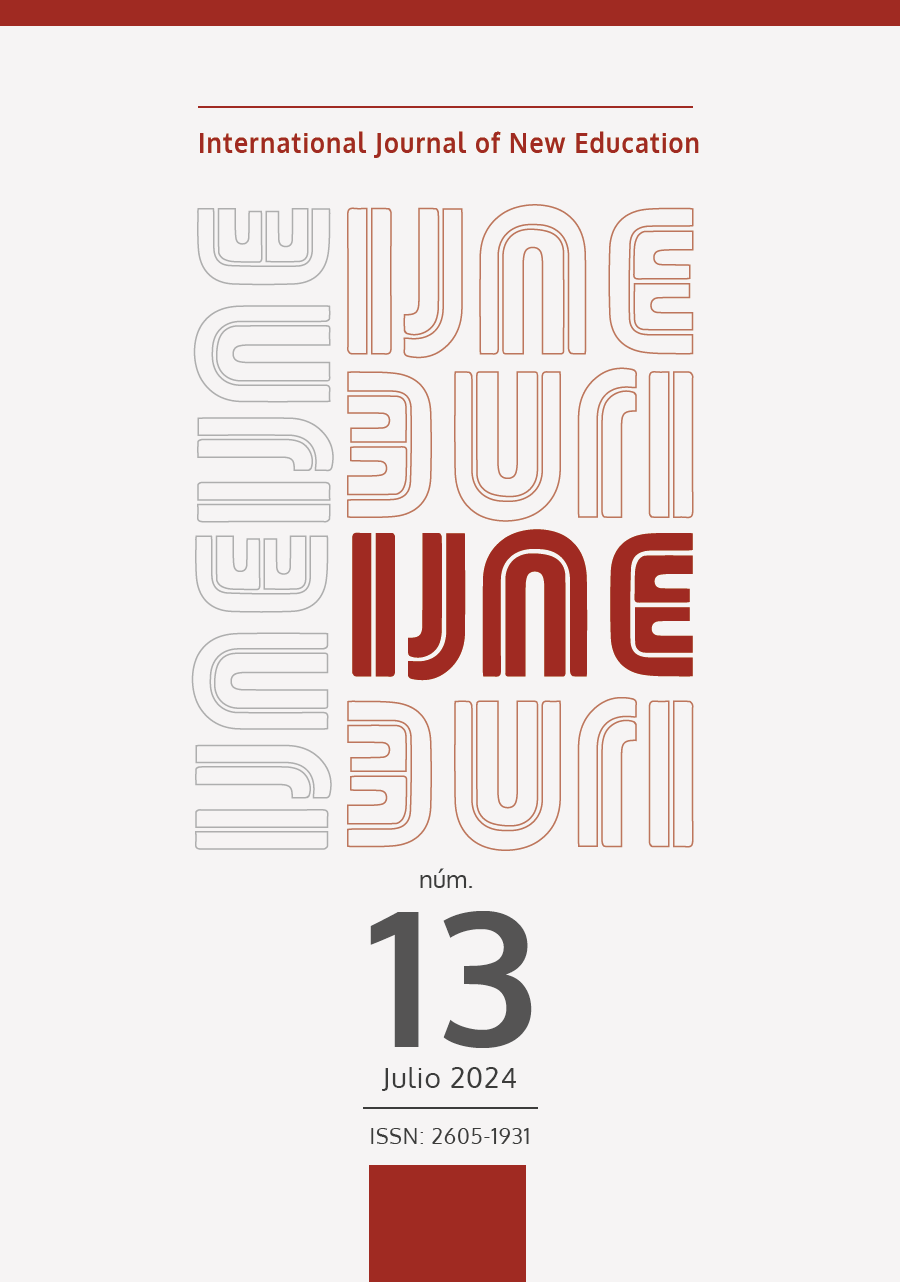Between educational exclusion and public policies. Literacy and inclusion in the Autonomous City of Buenos Aires. Argentina
DOI:
https://doi.org/10.24310/ijne.13.2024.18304Keywords:
Literacy for inclusion, didactic and institutional conditions, teaching intensification devicesAbstract
This article presents some conclusions from the research - action carried out in schools in the Autonomous City of Buenos Aires (CABA), Argentine Republic (2023). The research aimed to find a possible articulation between the didactic and institutional conditions and the progress of learning. We worked on a universe of thirteen “Low Performance” state-managed primary schools in the City. For this, an intervention was carried out in two dimensions. From a micro dimension, accompanying and advising teaching practices in each school, analyzing available resources, participating in meetings with teachers to problematize teaching, carrying out a thorough survey of knowledge in relation to students' reading and writing, and also providing material and human resources in situations that required it. On the other hand, and from a macro dimension, re-discussing educational policies with the authorities of the jurisdiction and rethinking institutional structures considering the sociocultural context in which the teaching-learning process takes place.
This research is framed in an educational policy of the Ministry of Education of CABA, Literacy for Inclusion (API), which articulates the intervention in state schools through Devices for the Intensification of Teaching (DIE) in a co-approach. responsibility together with the actors who make up the school, to problematize literacy and make visible school trajectories at risk. Based on this, agreements are established on different actions that enhance teaching so that they effectively promote progress in student learning.
Based on action research, API manages to redefine the task of the focused action programs that were implemented in the jurisdiction more than twenty years ago and, at the same time, promote educational practices that move the configurative constructs of the EBD.
That is, action research gave us substance to review our own practices, our participation as Socio-educational Programs in the City's educational policies.
Downloads
Metrics
Publication Facts
Reviewer profiles N/A
Author statements
Indexed in
-
—
- Academic society
- N/A
- Publisher
- Universidad de Málaga
References
COLMENARES E. & PIÑERO M. (2008). LA INVESTIGACIÓN ACCIÓN. Una herramienta metodológica heurística para la comprensión y transformación de realidades y prácticas socio-educativas. Laurus, 14(27),96-114.[fecha de Consulta 6 de septiembre de 2023]. ISSN: 1315-883X. Recuperado de: https://www.redalyc.org/articulo.oa?id=76111892006
DUSSEL, I., & SOUTHWELL, M. (2006). Claves para pensar pedagogías para este tiempo: La escuela en el mundo. Web
GAIRÍN SALLÁN, J. (1996) “Organización de instituciones educativas. Naturaleza y enfoques”. Domínguez Fernández, G. y Mesanza López, J. (comp.) Manual de organización de instituciones educativas. Madrid: Editorial Escuela Española.
GLUZ, N., CUTER, M., ALCÁNTARA, A. y WOLINSKY, V. (2005): Evaluación del Proyecto Maestro + Maestro. Programa ZAP (Zonas de Acción Prioritaria). Ciudad de Buenos Aires: Ministerio de Educación del Gobierno de la Ciudad de Buenos Aires.
JUDENGLOBEN, M.; ARRIETA, M.; Y FALCONE, J, (2003) "Brechas educativas y sociales. Un problema viejo y vigente", Ministerio de Educación, Ciencia y Tecnología, Dirección Nacional de Información y Evaluación de la Calidad Educativa, Buenos Aires, 2003.
KRESS, G. (2005). El alfabetismo en la era de los nuevos medios de comunicación, Granada, Ediciones El Aljibe-Enseñanza Abierta de Andalucía.
LIZZIO, G. (2010) Tesina: Las condiciones materiales y simbólicas del trabajo docente: El caso de los docentes y capacitadores laborales del Programa de Alfabetización, Educación Básica y Trabajo para jóvenes y adultos de la Ciudad de Buenos Aires. Universidad Nacional de San Martín.
MÁS ROCHA, S. M. (2006): Un proyecto de educación secundaria en los 90. El caso de las Escuelas Municipales de Educación Media (EMEM) de la Ciudad de Buenos Aires, Maestría en Política y Gestión de la Educación, Departamento de Educación, Universidad Nacional de Luján.
SOTOLONGO CODINA, P. y DELGADO DÍAZ, C. (2006): “La epistemología hermenéutica de segundo orden”. En Sotolongo Codina, C y Delgado Diaz, C. La revolución contemporánea del saber y la complejidad social: Hacia unas ciencias sociales de nuevo tipo. Buenos Aires. CLACSO
TENTI FANFANI, E.. (2007). La escuela y la cuestión social. Ensayos de sociología de la educación. Siglo XXI.
TENTI FANFANI, E. (2008) Dimensiones de la exclusión y políticas de inclusión, Revista Colombiana de Educación, N. º 54. Primer semestre de 2008, Bogotá, Colombia. https://revistas.pedagogica.edu.co/index.php/RCE/article/view/5276/4312
TERIGI,F. y otros (2010) Segregación urbana e inclusión educativa de las poblaciones vulnerabilizadas en seis ciudades de América Latina, Revista Latinoamericana de Educación Comparada: RELEC, ISSN-e 1853-3744, Año 1, Nº. 1, 2010, págs. 45-54
YUNI, J. & URBANO, C. (2003) Técnicas para investigar: recursos Metodológicos para la Preparación de Proyectos de Investigación. Córdoba: Brujas.
Downloads
Published
How to Cite
Issue
Section
License
Las obras se publican en edición electrónica bajo una licencia Creative Commons Reconocimiento-NoComercial 4.0 España: se pueden copiar, usar, difundir, transmitir y exponer públicamente, siempre que:
a) Se cite la autoría y la fuente original de su publicación (revista,
editorial y URL de la obra.
b) No se usen para fines comerciales.
c) Se mencione la existencia y especificaciones de esta licencia de uso.
Será responsabilidad exclusiva de los autores obtener los permisos necesarios de las imágenes que estén sujetas a derechos de autor.










16.png)
